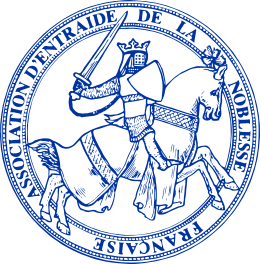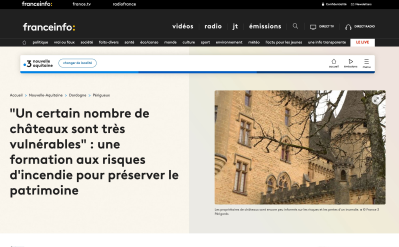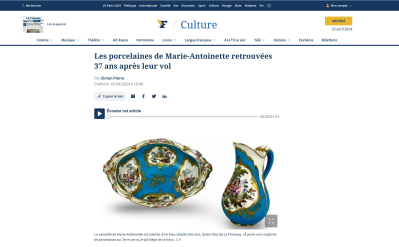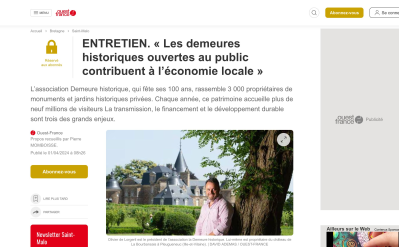News

Le Figaro: ""We have the skills, knowledge and experience to prevent assisted suicides": Élisabeth de Courrèges, believer and caregiver"
PORTRAIT : After working in palliative care, she now works as an occupational therapist on a ward for people with Alzheimer's. This committed Catholic, who is opposed to the bill for "aid in dying", advocates the virtues of fraternity.
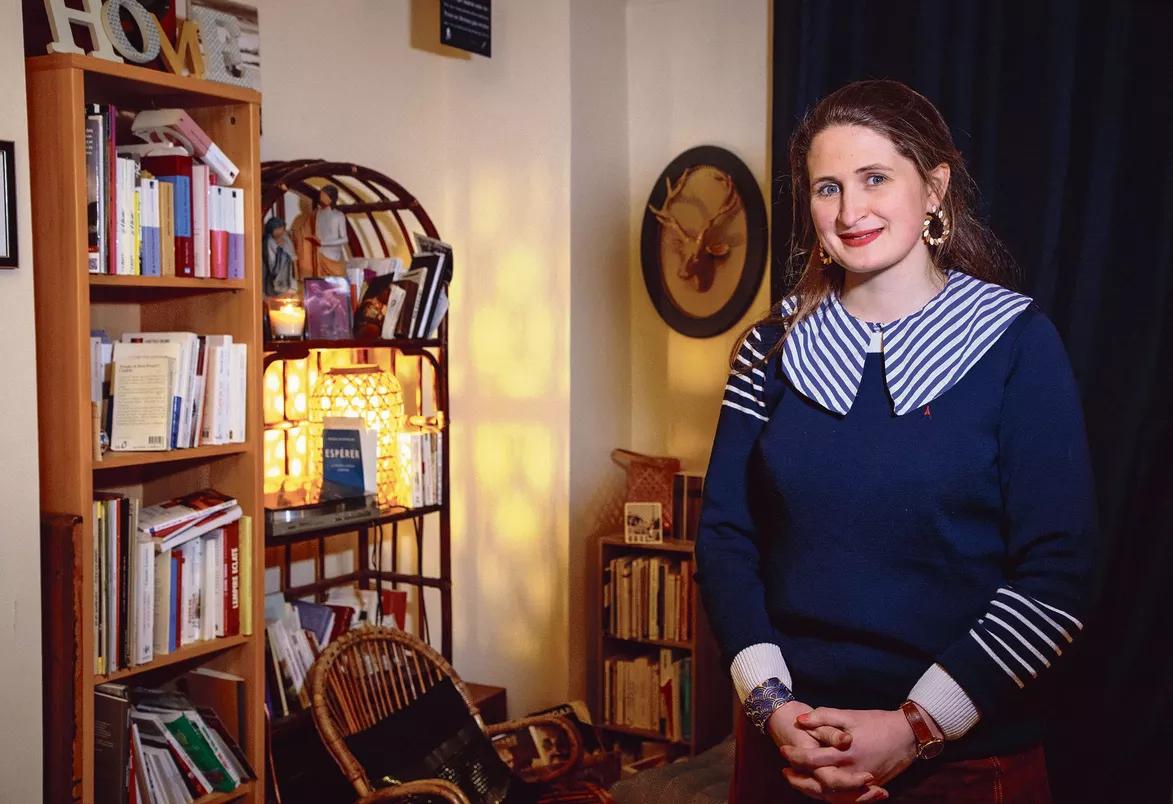
"For me, Easter means hope. I'm committed to causes that aren't exactly joyful, but the hope, thanks to the love of Christ, that I find in this Easter, is important", declares Élisabeth de Courrèges (pictured here on Friday in Paris). SEBASTIEN SORIANO/Le Figaro
Taking care of others, especially the most fragile, is the mission of Élisabeth de Courrèges, a young occupational therapist and author of a book, published in 2022, on end-of-life care. When we meet her this Easter, the young woman, adorned with a kind of quiet assurance, is preparing to go to mass "for the 8:30 pm service at the Butte-aux-Cailles".
However, she is happy and willing to talk about her profession, which is a kind of priesthood rooted in her family history and a deep-rooted faith.
"My parents, doctors, brought me up to love Christ, " she explains. I went to a lot of catechism classes as a child, along with my six brothers and sisters." She continues, sitting in the bedroom of the shared apartment she occupies: "Before I was 15, I had a vision of faith that was neither good nor bad. Then I went on a retreat in a monastery. That's when I met God and understood that the Lord loved me. It was a very intense feeling", she says, her gaze elsewhere, moved to evoke this memory that has shaped her spiritual life.
Since then, the love of Christ has never left her. The young woman even served as a missionary in a monastery in Yerevan, Armenia, between August 2022 and April 2023. If I die tomorrow, I'll be glad I went there," she says, still soaking up what she experienced in that war-torn land. As an occupational therapist, I looked after children with multiple disabilities or at the end of their lives. I worked in an orphanage run by Mother Theresa's sisters. I made them feel good despite their grief."
This experience was like a call to which she responded. " I wanted to help Armenia, the first country in history to declare itself Catholic Christian, in the year 301", she explains, pointing out that "there is a strong Armenian diaspora in France". As Easter 2024 approaches, she thinks almost naturally of that country. "For me, Easter means hope. I'm committed to causes that aren't exactly joyful, but the hope, thanks to Christ's love, that I find in this Easter, is important."
She continues: "It wasn't until later that I realized that the weakest needed the help of the able-bodied, and that this was nothing to be ashamed of." She refers to her sister in this modest way. She refers modestly to her sister: "During my childhood, I didn't want to see that my older sister was different, that she was mentally handicapped. One day, it jumped out at me and I was ashamed of her, I was angry at myself for feeling that way. Then I realized from my parents that she needed us." Her faith also enabled her to understand that there was a person behind her. "Saint Thomas recognized Jesus behind his wound, so there's also a person behind my sister's wounds. Emmanuel Levinas used to say, "These faces call us." Well, I say to her: 'Here I am, I'm here.
Following this realization, Élisabeth de Courrèges' choice of occupational therapy, a care-oriented profession, was almost self-evident. And it was in a palliative care unit, where she practiced, that her conviction that assisted suicide and euthanasia must be fought was forged, and she has written a book on the subject, Nous veillerons sur votre dignité, parole de soignante (Éditions Mame). "In palliative care, we don't cling to life at all costs, but we give value to what's left to live. When people have to go, they go. I understand that it can be hard to see dignity in certain moments, but when you take care of a person, you make that dignity more visible to them," she explains calmly.
Élisabeth de Courrèges makes her point, without ever getting carried away. When asked about Emmanuel Macron's proposed law on "aid in dying", she unfolds her arguments one by one. Calmly. I feel we know how to do things differently, " she assures us. We have the skills, knowledge and experience to avoid assisted suicides. And then I'm afraid we're making decisions too hastily. Already today, I've noticed that sometimes we make decisions and then think about them afterwards. So imagine if this kind of mechanism were put in place, concerning a patient's life... There would be tragedies. Not to mention the fact that the ban on giving death could be lifted," she says, as if saddened in advance.
"Every human being has dignity
Drawing on her experience, she notes. "I've seen very few people ask to die, after all. When we take good care of them, so when we put in the resources, our patients enjoy their last moments of life." For her, the first concern in this debate stems from a fear of self. "There's a lot of talk about dignity, but every human being, in any state, has dignity. We also talk about pain, but I can assure you that the patients I have don't complain much about their quality of life. It's fear that feeds this anxiety, the fear of seeing oneself grow old and die", says the occupational therapist. She adds: "I'm thinking of a lady who came to my department after struggling with Covid. She had bedsores all over her, an immobile grey face that didn't say a word, she could appear as the one they say is no longer 'worthy'. But in the end, we nursed her back to health and got her to come back to life a little. Then, little by little, she began to smile again, to speak even, and then she left, the most radiant she'd been in a long time, as if she'd needed this appeasement to leave, dignified."
Her life and family experience have reinforced this deep conviction. "My mom died a year ago, aged 70. Four years before her death, she was already potentially eligible for euthanasia. Well, during those four years, she experienced family moments that she wouldn't have been able to if she'd given in to temptation. I also perpetuate her convictions on the end of life. She left without suffering, in her own words."
For Easter, Élisabeth de Courrèges is thinking a lot about her mother in this context of debate on the end of life. "One day, the Lord will return to earth and everything we fought for will be consoled and healed. We'll find meaning in everything we do then. That's the hope that Easter inspires in me. It's also the essence of my mother's last message. "It would have been a shame to waste these beautiful and precious last months of my life with you. In my opinion, she is the symbol of this Easter."
Read the article on www.lefigaro.fr
By Sacha Beaud'huy
Published Sunday March 31, 2024
